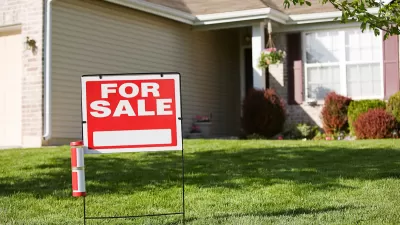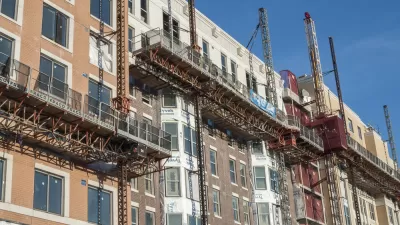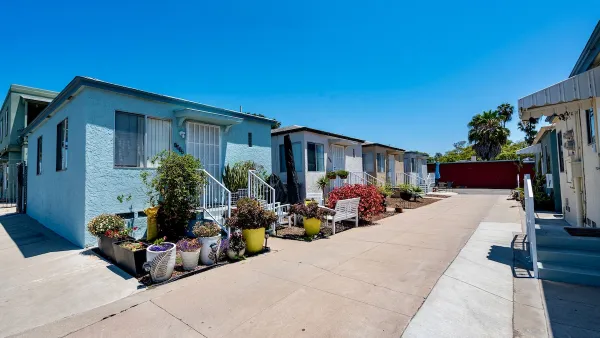While the middle class does not face the same kind of nationwide affordability crisis as low-income populations, geography and demographics are placing new stress on middle-income households.

"While housing affordability has long been a problem for low-income families, middle-income families are increasingly facing affordability challenges, especially in urban areas with strong labor markets," Jenny Schuetz writes. In a lengthy piece for Brookings, Schuetz uses data from the Census Bureau's Individual Public Use Microdata Sample (IPUMS) to examine housing stress on middle-income households.
Defining "middle-income" as households in the middle three income quintiles for their metro area, Schuetz writes that "where families live has wide-ranging consequences for their well-being. Location affects access to jobs, transportation, and social networks, as well as the quality of local services such as schools and public safety."
While homeownership is not easily accessible to lower-income households across the country, "among middle-income households, substantial homeownership gaps exist by age and race." Of course, homeownership also lags among the middle class in expensive cities. Given that owning a house acts as an effective means of "forced savings," Schuetz recommends that policymakers consider other ways to incentivize wealth-building, including other obligatory savings mechanisms and tax incentives.
She concludes by noting that in expensive cities with strong labor markets, "any long-term solution must involve increasing housing supply, especially near jobs and transit infrastructure."
FULL STORY: Cost, crowding, or commuting? Housing stress on the middle class

Maui's Vacation Rental Debate Turns Ugly
Verbal attacks, misinformation campaigns and fistfights plague a high-stakes debate to convert thousands of vacation rentals into long-term housing.

Planetizen Federal Action Tracker
A weekly monitor of how Trump’s orders and actions are impacting planners and planning in America.

Chicago’s Ghost Rails
Just beneath the surface of the modern city lie the remnants of its expansive early 20th-century streetcar system.

Bend, Oregon Zoning Reforms Prioritize Small-Scale Housing
The city altered its zoning code to allow multi-family housing and eliminated parking mandates citywide.

Amtrak Cutting Jobs, Funding to High-Speed Rail
The agency plans to cut 10 percent of its workforce and has confirmed it will not fund new high-speed rail projects.

LA Denies Basic Services to Unhoused Residents
The city has repeatedly failed to respond to requests for trash pickup at encampment sites, and eliminated a program that provided mobile showers and toilets.
Urban Design for Planners 1: Software Tools
This six-course series explores essential urban design concepts using open source software and equips planners with the tools they need to participate fully in the urban design process.
Planning for Universal Design
Learn the tools for implementing Universal Design in planning regulations.
planning NEXT
Appalachian Highlands Housing Partners
Mpact (founded as Rail~Volution)
City of Camden Redevelopment Agency
City of Astoria
City of Portland
City of Laramie





























